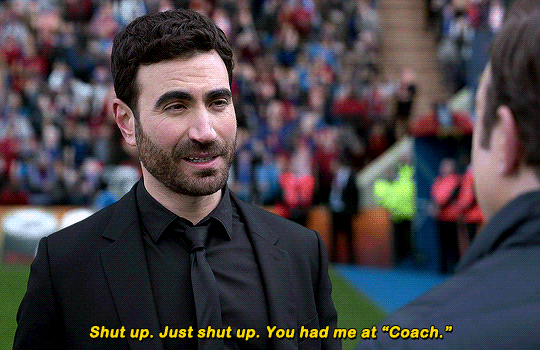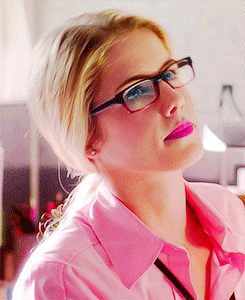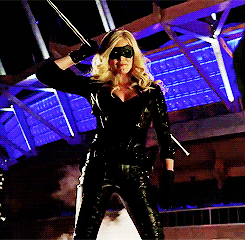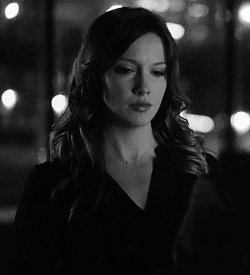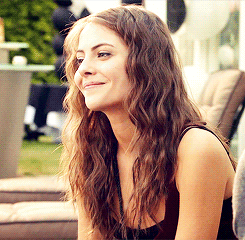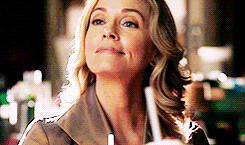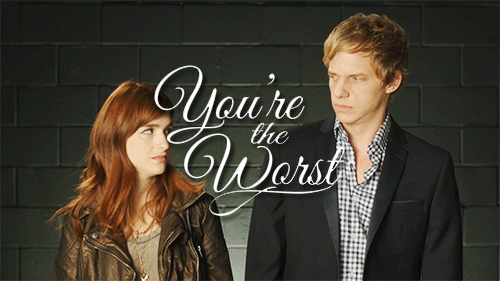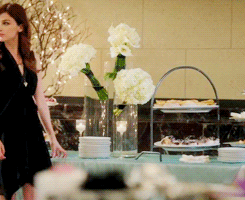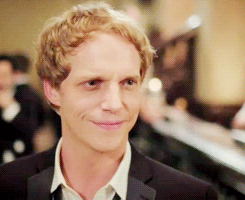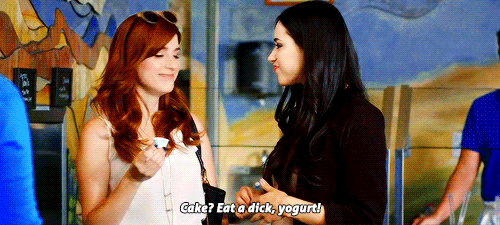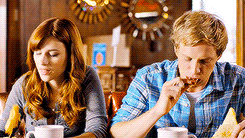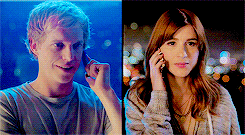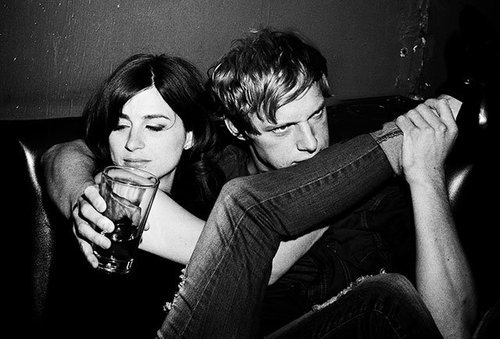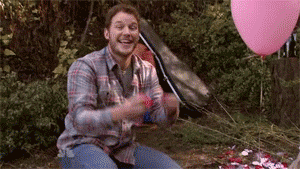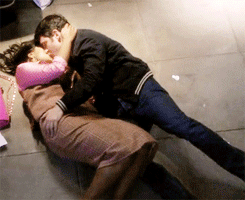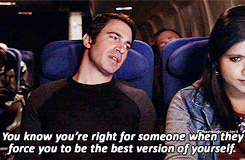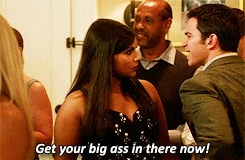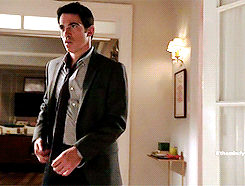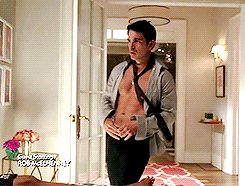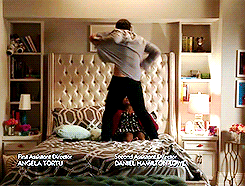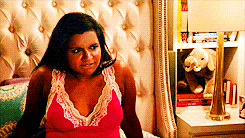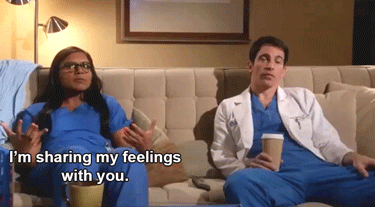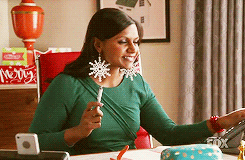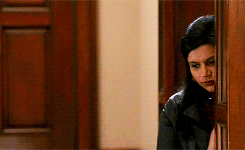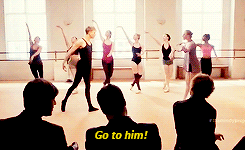STRONG WOMEN SERIES #1: The Women of Arrow
When I was at LeakyCon, there was a panel titled "Leading as a Lady." At this panel, a handful of female actresses from all mediums -- television, web, movies -- had the opportunity to discuss what it is like to be a woman in their craft. It was an enlightening panel, as everything from racial identity to sexism was discussed. But one of the most interesting questions at the panel and one that has resonated with me ever since was this: "Do you think 'strong, female character' has become a buzz word in the business?" It was an interesting question and one that piqued my interest at the panel. I had to wonder... is it true? Has the phrase "strong, female character" become a fad? Or, worse, has it become just a string of words that people tack onto a character description without fully recognizing what they mean? Is "strong, female character" the new "gluten-free"?
I said in the opening of my Mona Vanderwaal Appreciation Post that I like my villains the same way I like my Starbucks order (complex), and the same holds true for not just villains but heroes as well. I like complex characters. I like layered characters. I like rooting for a character and watching them stumble; I like hating a character and watching them prove me wrong. As a woman who avidly watches television critically because she has a background in English and therefore cannot help but see characters and story as anything but complex, I've become frustrated when those who write about television completely dilute what the phrase "strong, female character means." When I become enraged, however, is when these people only classify certain females as strong and deem others to be weak or inconsequential simply because they do not fit a stereotype or a preconceived notion.
Before I get to the ladies of Arrow, let me first attempt to define what makes a "strong, female character" and why this terminology is constantly misused and mishandled within the scope of pop culture criticism. In order to explain what a strong female is, let me first explain what she is NOT: a woman is not strong because she wields a weapon; a woman can be strong if she wields a weapon but that is not what classifies her as "strong." A strong woman is not someone who merely serves to overpower men or take their positions of authority. In example: Oliver Queen still has near-ultimate authority in Team Arrow, but Felicity Smoak is a strong female character without ever directly opposing him or overpowering his position as "leader." A strong female character is not just a person who yells or who sits on a throne or who knows how to put a man in a headlock. We tend to think of "strong" as a masculine term which is problematic when we attach it to the phrase "female character," because then the presumption is that a woman has to have the physical strength or stamina or attributes that a man does in order to be worthy of the term. (And this is understandable because when you look up the word "strong" in Merriam-Webster's Dictionary, the first definition references physical strength.)
But what if... what if the phrase "strong, female character" simply meant "a complex, multi-layered female character who does not serve as a prop for a story, but an anchor." Strong women can be vulnerable. Wow, that's shocking, right? Strong women can be romantic. Again: are you surprised? Strength is not inherently tied to invincibility, nor should it be. A woman should be considered strong if she triumphs in the face of adversity, no matter what that looks like. She should be considered strong if she is flawed -- if she falls and makes mistakes and sometimes says the exact wrong thing at the exact wrong moment. A woman should be considered strong if she changes the course of her own future and destiny. A woman should be considered strong if she allows herself to love and to be loved because when you fall in love, you are allowing yourself to be open and vulnerable and that kind of decision requires enormous strength.
Are you beginning to see a clearer picture of this "strong, female character"? If Hollywood wants to present us with these types of women -- these multi-layered, complex heroes and villains and antiheroes -- then I would not be more thrilled to embrace them. But -- and this is a BIG but -- if Hollywood continues to decide that in order to placate women, they must construct a "strong, female character" and do so by handing a female character a gun or a sword, slapping a label on her one-dimensional personality and calling it good, then I will continue to take offense. Give me Felicity Smoak. Give me Leslie Knope. Give me Jessica Day and Merida from Brave and Donna Paulsen. Give me Abbie Mills and Laurel Lance and Annie Edison and Elizabeth Keen. Present me with examples like Lizzie Bennet, Emma Woodhouse, Clara Oswald, and Moira Queen. Take women like Thea Queen and Britta Perry, Lindsay Monroe, Sara Lance, Liz Lemon, and Monica Geller and show them to me -- all of their faults and flaws, their hang-ups and quirks, their strengths and weaknesses and let me embrace them. Because within each of those women listed is a kernel of strength that blossoms and grows because it is unique, just like them.
Those, dear friends, are the "strong, female characters" I need to see more of. And, transitioning away from my diatribe of an introduction, let's discuss some of the characters that I noted above from The CW's colossal hit Arrow. Each woman at the beginning of the post is is strong: Laurel, Felicity, Sara, Moria, and Thea alike. Their strengths are rooted in different facets of their personality, so if you don't mind, I would like to take time throughout this post to explain what each of those facets are. Ready? Let's do this.
I said in the opening of my Mona Vanderwaal Appreciation Post that I like my villains the same way I like my Starbucks order (complex), and the same holds true for not just villains but heroes as well. I like complex characters. I like layered characters. I like rooting for a character and watching them stumble; I like hating a character and watching them prove me wrong. As a woman who avidly watches television critically because she has a background in English and therefore cannot help but see characters and story as anything but complex, I've become frustrated when those who write about television completely dilute what the phrase "strong, female character means." When I become enraged, however, is when these people only classify certain females as strong and deem others to be weak or inconsequential simply because they do not fit a stereotype or a preconceived notion.
Before I get to the ladies of Arrow, let me first attempt to define what makes a "strong, female character" and why this terminology is constantly misused and mishandled within the scope of pop culture criticism. In order to explain what a strong female is, let me first explain what she is NOT: a woman is not strong because she wields a weapon; a woman can be strong if she wields a weapon but that is not what classifies her as "strong." A strong woman is not someone who merely serves to overpower men or take their positions of authority. In example: Oliver Queen still has near-ultimate authority in Team Arrow, but Felicity Smoak is a strong female character without ever directly opposing him or overpowering his position as "leader." A strong female character is not just a person who yells or who sits on a throne or who knows how to put a man in a headlock. We tend to think of "strong" as a masculine term which is problematic when we attach it to the phrase "female character," because then the presumption is that a woman has to have the physical strength or stamina or attributes that a man does in order to be worthy of the term. (And this is understandable because when you look up the word "strong" in Merriam-Webster's Dictionary, the first definition references physical strength.)
But what if... what if the phrase "strong, female character" simply meant "a complex, multi-layered female character who does not serve as a prop for a story, but an anchor." Strong women can be vulnerable. Wow, that's shocking, right? Strong women can be romantic. Again: are you surprised? Strength is not inherently tied to invincibility, nor should it be. A woman should be considered strong if she triumphs in the face of adversity, no matter what that looks like. She should be considered strong if she is flawed -- if she falls and makes mistakes and sometimes says the exact wrong thing at the exact wrong moment. A woman should be considered strong if she changes the course of her own future and destiny. A woman should be considered strong if she allows herself to love and to be loved because when you fall in love, you are allowing yourself to be open and vulnerable and that kind of decision requires enormous strength.
Are you beginning to see a clearer picture of this "strong, female character"? If Hollywood wants to present us with these types of women -- these multi-layered, complex heroes and villains and antiheroes -- then I would not be more thrilled to embrace them. But -- and this is a BIG but -- if Hollywood continues to decide that in order to placate women, they must construct a "strong, female character" and do so by handing a female character a gun or a sword, slapping a label on her one-dimensional personality and calling it good, then I will continue to take offense. Give me Felicity Smoak. Give me Leslie Knope. Give me Jessica Day and Merida from Brave and Donna Paulsen. Give me Abbie Mills and Laurel Lance and Annie Edison and Elizabeth Keen. Present me with examples like Lizzie Bennet, Emma Woodhouse, Clara Oswald, and Moira Queen. Take women like Thea Queen and Britta Perry, Lindsay Monroe, Sara Lance, Liz Lemon, and Monica Geller and show them to me -- all of their faults and flaws, their hang-ups and quirks, their strengths and weaknesses and let me embrace them. Because within each of those women listed is a kernel of strength that blossoms and grows because it is unique, just like them.
Those, dear friends, are the "strong, female characters" I need to see more of. And, transitioning away from my diatribe of an introduction, let's discuss some of the characters that I noted above from The CW's colossal hit Arrow. Each woman at the beginning of the post is is strong: Laurel, Felicity, Sara, Moria, and Thea alike. Their strengths are rooted in different facets of their personality, so if you don't mind, I would like to take time throughout this post to explain what each of those facets are. Ready? Let's do this.

